Misdiagnosed Attention Deficit Disorder – ADHD
March 21st, 2011Misdiagnosed Attention
Deficit Disorder – ADHD
Science Daily.
Think about this for a minute. Almost 1 million children are potentially misdiagnosed with ADHD. And what happens when a child is misdiagnosed? More often than not that child is prescribed to take behavior-modifying stimulants such as Ritalin and they don’t need them!
Diagnosing ADHD or Misdiagnosing ADHD
There are two important criteria to look at in the diagnosis and misdiagnosis of ADHD. The first is the most obvious criteria. Look at the behaviors a child is having, doing, exhibiting. For example, can they sit still for a lesson or while you read to them? The second criteria is critical! What is the age of the child doing the behavior, and do look at others of the same age. If a child can’t seem to sit still but he is only 5 and the rest of the children are 6 or close to being 6, that is a big difference! It is much harder for a 5 year old to sit still than for a 6 year old to sit still. Teachers and medical practitioners need to remember this when evaluating whether a child has ADHD.
Additional Situations to Look at Regarding Diagnosis and Misdiagnosis of Attention Deficit Disorder – ADHD
1. Is the problem you are seeing situational (e.g. Only one parent sees it as a problem; at school they don’t seem to have the problems, when they are with dad they don’t seem to have the problems, or when they are with mom they don’t seem to have the problems.)
2. If only one parent is having problems with the child, it may be a problem with parenting skills (e.g. Yelling at the child such as “You don’t act like you want to be part of the family.” or “Get up right now or else” and then not follow through with a consequence.).
3. If the teacher is the only one having a problem it may be a problem with the way the teacher is dealing with the child or it may be an inexperienced teacher.
4. Other times a child is misdiagnosed with attention deficit disorder is when the actual problem occurs through a shutdown of either their auditory system or their vision system.
- When the auditory or vision system becomes overloaded, it shuts down and needs a break. When either of these systems shuts down temporarily, the child often appears to be not paying attention. What is happening is either the vision system or the auditory system is resting.
- Unfortunately, often the child has trouble bringing themselves back to the activity at hand. A gentle reminder to come back to the activity is all that is needed in this instance, and it may need to be given each time they aren’t paying attention until the child learns to come back on their own.
Remember, a diagnosis of ADHD requires evidence of multiple symptoms of inattention or hyperactivity, with these symptoms persisting for six or more months — and in at least two settings — before the age of seven. The settings include home and school.
Additionally, teachers cannot diagnose ADHD, but, their opinions are often used in decisions to send a child to be evaluated for attention deficit disorder. You know your child. Remember, the diagnosis requires evidence of multiple symptoms in at least two settings, so if the school is seeing symptoms and you don’t see symptoms at home the problem might not be one of ADHD. That is NOT to say that you don’t want to look into it. Obviously something is going on that is interfering with your child’s learning and you do want to see what you can do to make learning easier for them.
“Many ADHD diagnoses may be driven by teachers’ perceptions of poor behavior among the youngest children in a kindergarten classroom,” Todd Elder states. “But these ‘symptoms’ may merely reflect emotional or intellectual immaturity among the youngest students.”
So, what happens educationally when your child has ADHD?
Educational Problems Caused by ADD/ADHD
Although attention deficit disorder (ADHD) is not a learning disability, ADD/ADHD obviously affects performance in a school setting, as well as affects other parts of their life. Kids and adults with ADD have neurological gaps that interfere with the cognitive processes of memory, concentration, and attention span.
In other words, kids with attention deficit disorder have often missed out on instruction because they were distracted and attending to other things instead of the instruction that was being given. Assignments, especially homework may be missed because they were distracted and attending to other things instead of the assignment that was being given. When kids aren’t paying attention in class, they often miss bits and pieces of skills, content, and the easy tricks to becoming efficient learners.
Dr. Daniel Amen states that school problems can include:
o Restlessness
o Short attention span and distractibility
o Impulsiveness
o Procrastination
o Trouble shifting attention
o Forgetfulness
o Writing disabilities
o Reading disabilities
o Visual processing problems
o Auditory processing problems
o Unusual study habits
o Difficulties with timed situations such as timed tests.
ADHD and Learning Disabilities or Dyslexia
About 70% of kids with ADHD also have dyslexia, learning difficulties or learning disabilities. School age kids may have problems with reading, spelling, writing, penmanship, or arithmetic.
The question then becomes one of, how do I help my ADHD kids to do well in school when they have such trouble attending to the instruction? How do I help them to improve their memory, mental energy, organizational skills, and expressive vocabulary so they can succeed in the school setting?
There is a lot you can do to help your ADHD child in school. The key is to determine what specifically is interfering with their learning. Is it only the ADHD, or have they been misdiagnosed with ADHD? Are there other underlying causes interfering with their learning in addition to ADHD? For more information on the underlying causes of learning problems, you will want to check out our comprehensive behaviorally based learning assessment.
It is critical to your child’s success, whether they have attention deficit disorder or not or whether they have been misdiagnosed with ADHD or not, to find out what other underlying causes may be contributing to your child’s educational struggles. Once you know exactly what is going on, there is so much you can do to help your child whether they have ADHD, have been misdiagnosed with ADHD or have a learning difficulty or learning disability.










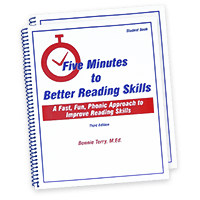
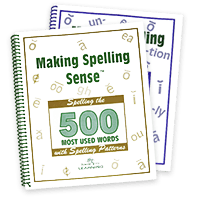

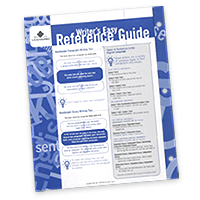
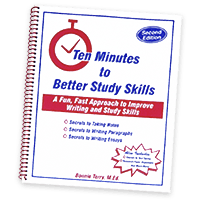




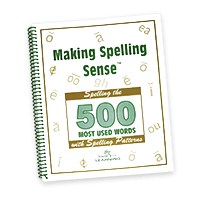









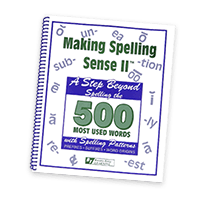
http://www.GardenofHealthBuffalo.com
Great Article! Every time I think about a child (person) with a learning disability I ask the question: Is drugging the child a vitalistic approach? Will that drug raise that child’s health so that he / she can be more, do more and achieve a greater impact on fellow human beings. The research is out – and the answer is NO. You must understand that a child that cannot learn will not be any brighter while being drugged. Interestingly, MD’s in the US prescribe five times the quantity of stimulants for children as MD’s in other countries. Many parents worry about drugging their children for multiple reasons. Their thoughts “Is there another way?” Absolutely! Chiropractic offers a child the ability to be at their best without drugs. As a parent I urge you to get your child’s spine evaluated to see if chiropractic can help your child. When as humanitarians are we going to stop lowering self achievement and start to deal with the cause of the problem? Healthier people for a healthier planet.
I use bluehost.